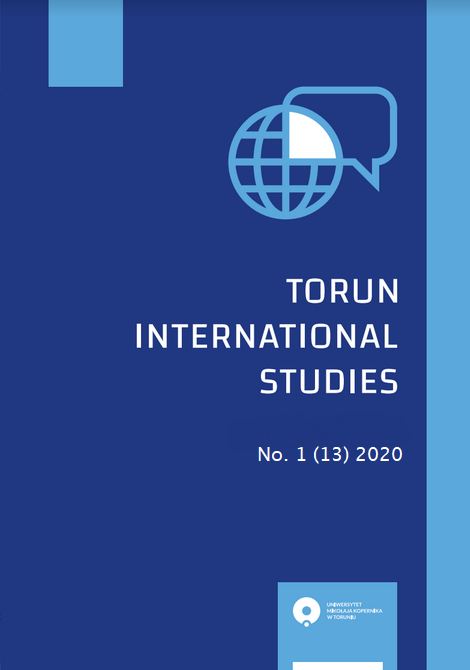UNDERSTANDING THE DRAGON’S ENTRY TO SOUTH ASIA: REVISITING THE REGIONAL SECURITY COMPLEX THEORY
UNDERSTANDING THE DRAGON’S ENTRY TO SOUTH ASIA: REVISITING THE REGIONAL SECURITY COMPLEX THEORY
Author(s): Harsha SenanayakeSubject(s): Politics / Political Sciences, Security and defense, Geopolitics
Published by: Wydawnictwo Naukowe Uniwersytetu Mikołaja Kopernika
Keywords: Regional Security Complex Theory; Barry Buzan; BRI; Sri Lanka; India; China; South Asia
Summary/Abstract: The regional security complex theory scrutinizes the security complexes including the security complex of South Asia grounded on security interdependency among states situated in a geographically coherent group which could be penetrated by the external powers. The formation of the regional security complex of South Asia was shaped by two major factors: 1. The rivalry between India and Pakistan; 2. The dependency of small nations over the regional hegemony of India. However, the massive plan of economic growth and connectivity- BRI introduced by China have changed these dynamics of the complex. The BRI changed the traditional understanding of the regional security complex of South Asia and forced to contemplate China as an internal member of the complex rather considering China as external power. The purpose of the study is to capture these changes and alter the theory to understand the South Asian security complex sophisticatedly by considering the smaller states of South Asia (Sri Lanka and Nepal). The case study method has been employed to derive influences from the BRI, and it is based on a wide range of sources, both primary and secondary. BRI has changed the traditional patterns of security interdependency of the smaller states of South Asia vis-à-vis big brother India while elevating the Chinese ability to redefine, reorganize, reshape, and reconstruct the security patterns of South Asia and establishing Chinese military supremacy in Indian backyard. The traditional security complex theory did not capture these changes and yet, the paper argues that the regional security complex can be understood comprehensively by transporting external powers into a given complex based on the criteria, to be qualified as an internal actor. To validate this claim, the paper will consider the case study of Chinese led BRI projects and the regional complex of South Asia.
Journal: Toruńskie Studia Międzynarodowe
- Issue Year: 1/2020
- Issue No: 13
- Page Range: 73-91
- Page Count: 19
- Language: English

